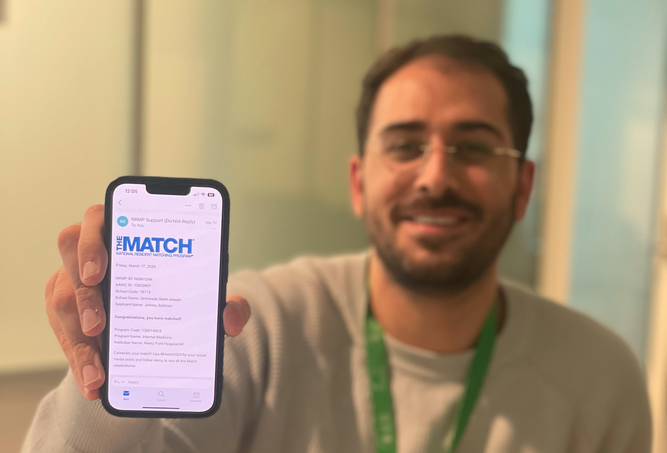Virtual clinical experiences are becoming increasingly commonplace. Many medical trainees see them as a unique opportunity to earn letters of recommendation while staying safe in the comfort of their homes.
As the world transitions to online learning experiences, there will be a learning curve. This is true of virtual clinical experiences as well. Don’t worry though, there are many things you can do to ensure that your online clinical experience is every bit as rewarding as those that are in-person. The tips shared below are a great starting point.
Ensure a Strong Internet Connection
Don’t let a poor internet connection or outdated technology interrupt your education. To prevent this from happening, double-check the technology requirements listed for the online experience you are participating in. Requirements vary based on the preceptor’s preferences and are listed on the individual virtual rotation program pages. If a technology issue does occur, it can be an excellent learning opportunity as such errors sometimes occur between physicians and patients during online telehealth consultations. Learning how to navigate such issues can be an essential part of the curriculum.
Consider Time Zone Differences
When scheduling your clinical experience, it is crucial to recognize that the time listed on the program page is based on the physician’s location. Depending on the distance from the physician, the time recorded may be very different than that of your local time. You may have to adjust your routine to participate in the experience as scheduled.
Establish a Routine
Speaking of routine, it is a good idea to establish one for the duration of your clinical experience. If you were participating in an in-person experience, you might get into the routine of commuting in the morning and evening and stopping off for lunch in the middle of the day. While an online clinical experience eliminates the commute, you will still need to be mindful that the clinical experience will be demanding in some ways and require you to get good sleep and stay well fueled. Doing both these things will help you to concentrate and perform your best.
Limit Distractions
Your preceptor will be sharing a lot of valuable information. To take it all in, you’ll need to make sure you can focus on what is being displayed on the screen. Distractions are bound to arise while learning from home, especially if you share a living space with others. To limit the number of interruptions, set up a desk or table somewhere quiet. Another distraction, in addition to those presented in your living space, may be your mobile phone. To avoid the temptation of staying up to date on social media and answering messages during your clinical experience, keep your phone at a distance.
Dress for the Occasion
Those who complete in-person clinical experiences are generally required to wear a white coat and business professional or casual clothing. While you do not have to get this formal for your online clinical experience, it is still important to dress well. Our clothing can often impact how we feel. To feel your best, wear clothing that inspires you, something that is comfortable but not so much so that it affects your ability to remember you are participating in a clinical experience.
Prepare Supplemental Material
Sometimes, your precepting physician may assign supplemental reading. If they do, log in to your clinical experience prepared. Failing to stay up to date with the information covered can cause your precepting physician to perceive you in a negative light. It is vital for you to maintain a good relationship with your precepting physician as you may want them to write you a letter of recommendation (LoR) upon completing the clinical experience. When it comes to LoRs, the most crucial aspect is the content. You want a letter that speaks to your work ethic and entices residency programs. Completing your work on time and with effort puts you in the position to receive a standout letter of recommendation.
Failing to complete supplemental material may cause you to feel confused when your physician is covering similar material with other students rotating or even a patient. The purpose of this clinical experience is to prepare you for residency or taking a USMLE exam. To do well in both, you must have an extensive understanding of medicine. Clinical experiences provide you the opportunity to learn a ton!
Make Connections
As mentioned above, LoRs are a primary driver when it comes to booking a clinical experience. You may be concerned that an online clinical experience will hinder your ability to connect with the physician who will be writing your letter. Oftentimes, online experiences can actually lead to stronger connections as they require both you and your precepting physician to directly address each other through the technology platform preferred by your program. To build out your relationship with your precepting physician even further, be sure to ask them questions pertaining to the program curriculum and medicine in general.
Ready to participate in an online clinical experience?
Create an account to explore and apply to those currently available >







Leave A Comment